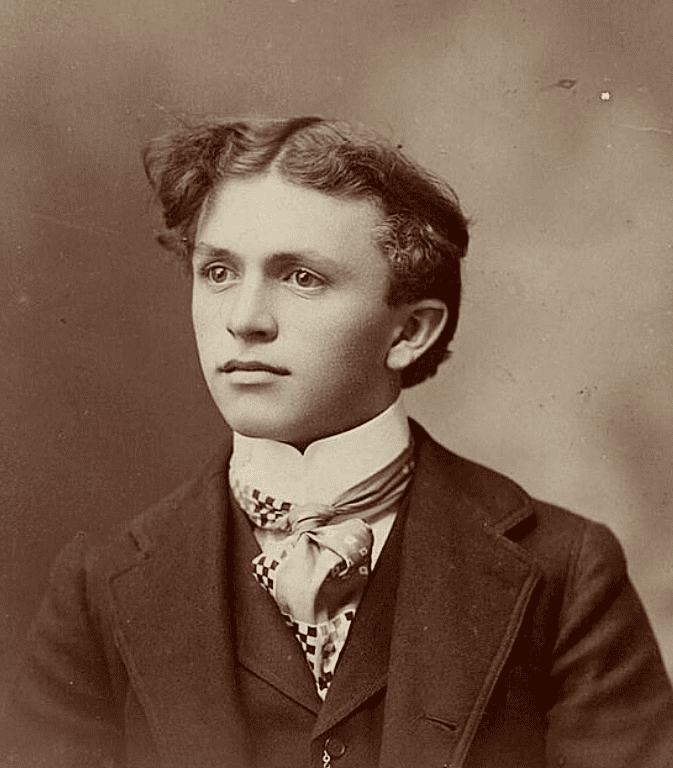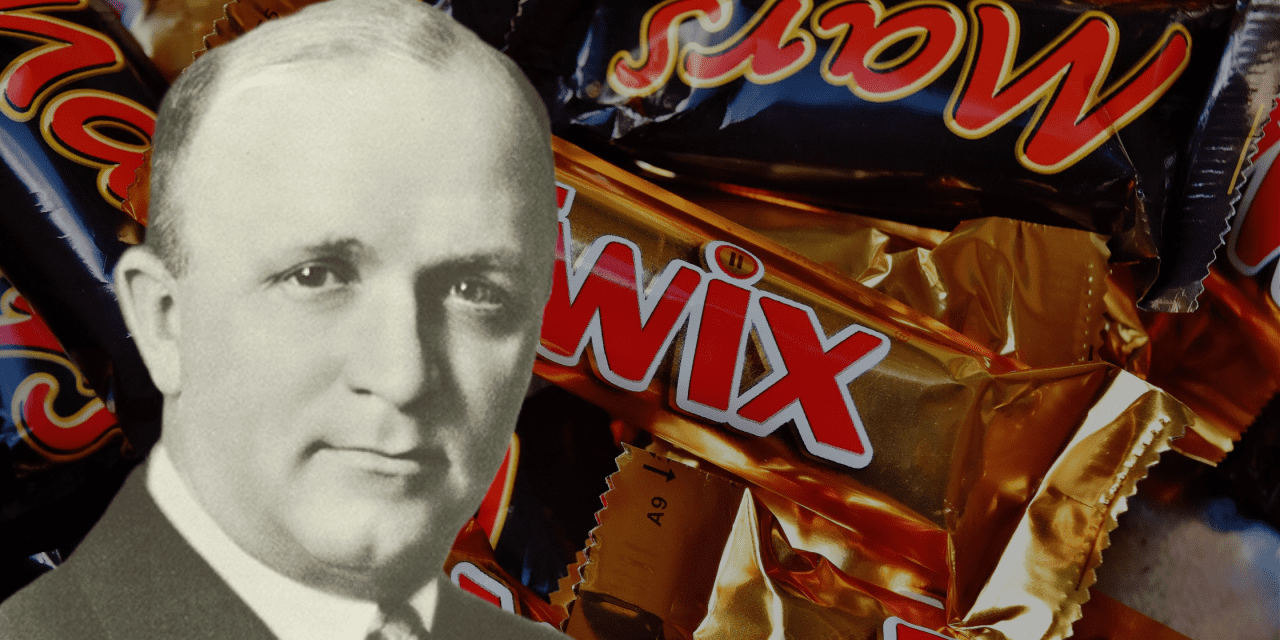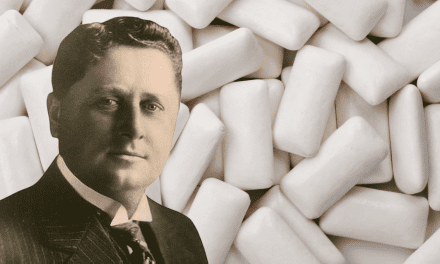Last updated 1 year ago ago | Originally Published: August 17, 2024
When Frank C. Mars began making candy in his kitchen, he likely had no idea that his efforts would lead to creating a global confectionery empire. Born in 1883 in Minneapolis, Minnesota, Mars overcame significant financial struggles in his early life to become one of the most influential figures in the candy industry. His journey from humble beginnings to the founder of Mars, Incorporated, is a remarkable story of innovation, determination, and business acumen. Mars’s contributions, including creating iconic products like the Milky Way bar, have left a lasting impact on the candy industry and established a legacy that continues to thrive today.
Early Life and Career Beginnings
Frank C. Mars wasn’t born into wealth. He was born in Minneapolis, Minnesota, in 1883 to a family that struggled financially. Despite his challenges, Frank showed an early interest in candy making. His mother, Elva Mars, taught him to hand-dip chocolates as a young boy. This early exposure to the craft sparked his lifelong passion for the candy industry.
Frank’s first attempt at starting a candy business came when he was just a teenager. He started making and selling homemade candy, but his early ventures weren’t successful. It’s important to remember that back then, resources were scarce, and the candy market wasn’t as developed as it is today. Frank’s initial failures didn’t stop him; they taught him valuable lessons about resilience and persistence.

Challenges and Setbacks—Lessons in Resilience
Frank Mars’s journey to success was far from smooth, marked by numerous challenges and setbacks that tested his resolve. He faced multiple failed ventures early in his career, including unsuccessful attempts at establishing candy businesses. These failures, while disheartening, provided Mars with invaluable lessons that would later shape his approach to business and innovation.
Financial difficulties also plagued Mars throughout his early endeavors. Limited resources and the harsh realities of a fledgling business meant that he often struggled to keep his ventures afloat. Despite these financial hardships, Mars remained determined to pursue his passion for candy making, using each setback as an opportunity to refine his strategies and improve his products.
Personal struggles further compounded Mars’s challenges. Balancing the demands of entrepreneurship with family responsibilities, including a strained relationship with his son Forrest, added to the complexity of his journey. These personal challenges tested Mars’s resilience, but his unwavering commitment to his vision kept him moving forward despite adversity.
Ultimately, Mars’s ability to learn from his failures and persevere through difficulties set him apart as an entrepreneur. His story is a powerful reminder that success often requires enduring and overcoming significant obstacles. By confronting and navigating these challenges, Frank. Mars laid the groundwork for the enduring legacy of Mars, Incorporated.
Founding of Mars, Incorporated
Frank C. Mars founded Mars, Incorporated in 1911 while living in Tacoma, Washington. He started experimenting with candy recipes, aiming to create something truly unique. His early efforts laid the foundation for what would become a major player in the confectionery industry. This period marked the beginning of Mars’s journey toward building a successful and enduring business.
Mars, Inc.’s breakthrough came in 1923 with the creation of the Milky Way bar. This innovative candy bar quickly gained popularity, featuring a nougat center covered in caramel and chocolate. Its unprecedented success proved that Frank’s dedication to quality and innovation could lead to widespread consumer appeal. The Milky Way’s popularity set the stage for Mars’s future growth.
With the success of the Milky Way, Frank relocated Mars, Incorporated, to Chicago, Illinois. This strategic move provided better access to larger markets and more efficient distribution channels. In Chicago, the company flourished, expanding its operations and solidifying its reputation in the candy industry. The relocation to Chicago marked a significant turning point in the company’s journey toward becoming a confectionery giant.

Impact of the Great Depression
During the Great Depression, when many businesses struggled to survive, Frank Mars’s leadership allowed Mars, Incorporated, to endure and thrive. Despite the widespread economic downturn, Mars remained committed to his core principles of quality and innovation.
Instead of cutting corners or lowering standards to save costs, he doubled down on product excellence, ensuring that every candy bar met consumers’ high expectations. This focus on quality helped build brand loyalty at a time when consumers were more discerning with their limited resources. Frank’s decision to maintain the integrity of his products, rather than opting for short-term cost-saving measures, played a crucial role in keeping the company strong during such challenging times.
Frank Mars also embraced diversification as a strategy to weather the economic storm. He recognized the risks of relying too heavily on a single product, so he expanded Mars, Incorporated’s product line, introducing new candies that appealed to different market segments. This approach spread the risk and allowed the company to tap into new revenue streams.
By continuously innovating and expanding the product portfolio, Mars mitigated the impact of the economic downturn and positioned the company for long-term growth. His ability to adapt and pivot during one of the most challenging periods in economic history provides a timeless lesson in resilience and strategic thinking, illustrating how businesses can navigate crises through careful planning and unwavering commitment to their core values.
Expansion and Innovation
Frank C. Mars didn’t stop with the Milky Way. He continued to innovate, develop new products, and refine the production process. One of his key innovations was the creation of the Mars Bar, which became another classic candy. He also introduced efficient production techniques that allowed Mars, Incorporated, to produce candy on a larger scale without compromising quality.
But Frank’s vision wasn’t just about making candy and creating a brand that stood for quality and consistency. He was meticulous about the ingredients used in his products, often traveling personally to oversee sourcing the finest ingredients. This dedication to quality helped Mars, Incorporated build a reputation that has lasted for over a century.
Frank’s son, Forrest Mars Sr., played a significant role in the company’s expansion. After a falling out with his father, Forrest moved to Europe and started his own successful candy business. When he returned to the United States, he rejoined Mars, Incorporated and helped launch new products, including the iconic M&Ms. The partnership between Frank and Forrest wasn’t always smooth, but their combined efforts turned Mars, Incorporated, into one of the largest privately owned companies in the world.
The Role of Family in Business
The relationship between Frank C. Mars and his son Forrest Mars Sr. was both complex and pivotal to the evolution of Mars, Incorporated. Frank laid the company’s foundation, but Forrest took the business to new heights.
After a disagreement with his father, Forrest left the U.S. and moved to Europe, where he started his own successful confectionery business. This period of independence allowed Forrest to develop his own business philosophy and innovative ideas, which he later brought back to Mars, Incorporated. Their reunion was not without challenges, but the blending of Frank’s foundational principles with Forrest’s bold vision led to the company’s unprecedented growth.
Running a family business comes with unique challenges, particularly regarding succession planning and managing differing visions for the future. Frank and Forrest’s relationship exemplified these challenges, as they had to navigate their personal differences while working together to ensure the company’s success.
Forrest’s return marked a new era for Mars, Incorporated, where his ambitious expansion strategies and introduction of new products like M&M’s transformed the company into a globally recognized name. Though occasionally strained, the dynamics between father and son ultimately shaped the trajectory of the business and underscored the importance of strategic succession planning in family-run enterprises.
The Influence of Frank C. Mars on Modern Business Practices
Frank Mars’s commitment to quality control was revolutionary for his era, setting a standard that many modern businesses still strive to meet. He believed that product excellence was non-negotiable, ensuring that every item bearing the Mars name met rigorous quality standards. This emphasis on quality created a strong brand reputation, teaching today’s entrepreneurs the critical importance of maintaining consistent product integrity.
Mars was a pioneer in supply chain management. He recognized early on that controlling the entire production process was key to ensuring product quality and efficiency. He minimized risks and ensured consistency by managing everything from ingredient sourcing to distribution. This holistic approach to supply chain management is now a cornerstone of modern business practices, where control and efficiency are crucial for success.
Mars’s focus on employee welfare was also ahead of its time. He understood that a happy, well-treated workforce was essential to maintaining high production standards and fostering innovation. Mars provided fair wages, good working conditions, and uncommon benefits. This forward-thinking approach boosted productivity and set a precedent for modern employee welfare programs, highlighting the importance of investing in human capital.
By integrating quality control, supply chain management, and employee welfare into his business model, Frank C. Mars laid the groundwork for practices that are now considered essential in the corporate world. His methods have influenced countless companies, demonstrating how a holistic approach to business can lead to long-term success. Today’s business leaders continue to draw inspiration from Mars’s pioneering efforts, applying these principles to create sustainable and successful enterprises.

Leadership and Business Strategy
Frank C. Mars’s leadership was rooted in a hands-on approach and a deep commitment to innovation. He was dedicated to producing high-quality products, understanding that customer satisfaction would lead to long-term success. Unlike many leaders of his time, Mars refused to compromise on quality, even if it meant higher production costs. His emphasis on creating exceptional products laid the foundation for Mars, Incorporated’s enduring reputation for excellence.
Mars also demonstrated a keen understanding of business strategy. He recognized that the key to building a successful company was not just in the products themselves but in creating a brand that consumers could trust. By focusing on quality and innovation, Mars ensured that the Mars name became synonymous with reliability and customer satisfaction. This strategic focus on brand building helped the company grow and thrive, even during challenging economic times.
Furthermore, Mars’s approach to business was marked by strategic foresight. He carefully chose the locations for his business operations, understanding that access to larger markets and efficient distribution channels would be crucial for expansion. His decision to relocate Mars, Incorporated, to Chicago was pivotal in the company’s history, allowing it to capitalize on new opportunities and scale its operations effectively.
Lastly, Mars’s leadership extended beyond product innovation and strategic planning; it also involved understanding the importance of long-term growth. He focused not on immediate profits but on building a sustainable enterprise. This vision for enduring success ensured that Mars, Incorporated would survive and continue to grow for generations, cementing Frank C. Mars’s legacy as a leader who combined innovation with strategic business acumen.
Frank C. Mars’s Leadership Lessons for Today’s Entrepreneurs
- Focus on Quality: Frank C. Mars believed that quality should never be compromised. He was meticulous about the ingredients and production processes, ensuring that every product met the highest standards. For entrepreneurs today, this lesson emphasizes that customers value excellence, and delivering consistent quality can set your brand apart from competitors.
- Innovation is Key: Mars always looked for ways to improve its products and processes. Innovation was at the heart of his success, whether it was creating the Milky Way bar or developing efficient manufacturing techniques. Entrepreneurs should embrace change and constantly seek out new ways to meet customer needs and stay ahead in a competitive market.
- Persistence Pays Off: Frank C. Mars faced numerous challenges and failures in his early career but never gave up. His persistence and resilience eventually led to the founding of a global candy empire. Entrepreneurs can learn from this by understanding that setbacks are a part of the journey and that perseverance is often the key to long-term success.
- Strategic Vision: Mars had a clear vision for where he wanted his company to go and made strategic decisions to achieve that vision. From choosing the right location for his business to focusing on brand building, his foresight played a crucial role in Mars, Incorporated’s growth. Entrepreneurs should develop a strong vision for their business and make strategic decisions that align with their long-term goals.
- Building a Legacy: Frank C. Mars didn’t just focus on short-term gains; he was committed to building a lasting enterprise. His dedication to quality, innovation, and strategic planning ensured that Mars, Incorporated would continue to thrive long after his time. Entrepreneurs should think beyond immediate success and focus on creating a business that can endure and grow for generations.
Challenges and Setbacks—Lessons in Resilience
Frank Mars’s path to success was fraught with challenges and setbacks that tested his resilience. He faced multiple failed ventures early in his career, including several unsuccessful candy businesses. These failures could have discouraged him, but they became valuable learning experiences that helped him refine his business strategies and persevere in the competitive confectionery industry.
Financial difficulties were a constant hurdle for Mars, particularly during the early stages of his entrepreneurial journey. Limited resources and the pressures of sustaining a new business often placed him in precarious financial situations. Despite these challenges, Mars’s determination to succeed never wavered. He adapted to these financial constraints by focusing on innovation and improving his products.
Personal struggles also played a significant role in Mars’s life, adding to his challenges. Balancing his business ambitions with family responsibilities, particularly his strained relationship with his son Forrest, created additional stress. These personal difficulties, however, did not deter Mars. Instead, they strengthened his resolve to build a lasting legacy through his company, Mars, Incorporated.
The resilience that Frank C. Mars demonstrated in overcoming these obstacles is a testament to his character and determination. His ability to turn setbacks into opportunities for growth is a key lesson for today’s entrepreneurs. Mars’s journey illustrates that success is often born out of adversity and that perseverance is essential in navigating the challenges of building a successful business.
The Final Days of Frank C. Mars
Frank C. Mars passed away on April 8, 1934, at 50, due to a heart attack. His sudden death was a significant loss, but by then, he had already built a solid foundation for Mars, Incorporated. His family, particularly his son Forrest, took on the mantle to ensure the company’s continued growth.
Frank’s funeral was attended by family, close friends, and business associates who recognized his pioneering contributions to the candy industry. The service reflected the respect and admiration he had earned throughout his life. Although his life ended prematurely, the principles he established for his company continued to guide Mars, Incorporated.
Frank C. Mars may no longer be with us, but his legacy endures through the continued success of Mars, Inc. The company’s ongoing commitment to quality and innovation directly reflects Frank’s vision. His influence on the industry remains strong, serving as an inspiration for future generations.

Legacy and Influence
Frank C. Mars’s legacy is deeply ingrained in the ongoing success of Mars, Incorporated, which today stands as one of the world’s leading confectionery companies. The company’s iconic products, like Snickers, Twix, Skittles, and Milky Way, reflect Frank’s unwavering commitment to quality and innovation. His influence on the candy industry set a high standard guiding Mars, Incorporated.
Mars, Incorporated’s status as a family-owned business underscores the enduring impact of Frank C. Mars’s vision. The active involvement of the Mars family in the company’s operations highlights the importance of succession planning and the strength of a well-founded enterprise. Frank’s ability to build a company that thrived during his lifetime and flourished across generations is a remarkable achievement.
Frank’s journey from modest beginnings to creating a global candy empire inspires entrepreneurs. His success story is a testament to the power of perseverance, resilience, and strategic risk-taking. Frank C. Mars’s legacy goes beyond the products he created; it lies in the values he instilled in Mars, Incorporated—values that continue to drive the company’s success and influence the broader confectionery industry.
Learn More About Frank C. Mars
For further exploration of Frank C. Mars’ legacy and the lasting impact of his innovative strategies, the following references provide detailed insights into his life, the growth of the Mars company, and his leadership principles.
- Mars-Wrigley Official Website: https://www.mars.com/
- Wikipedia: https://en.wikipedia.org/wiki/Franklin_Clarence_Mars
- Kids Encyclopedia Facts: https://kids.kiddle.co/Franklin_Clarence_Mars
- Candy Retailer: https://www.candyretailer.com/blog/mars-inc






Recent Comments